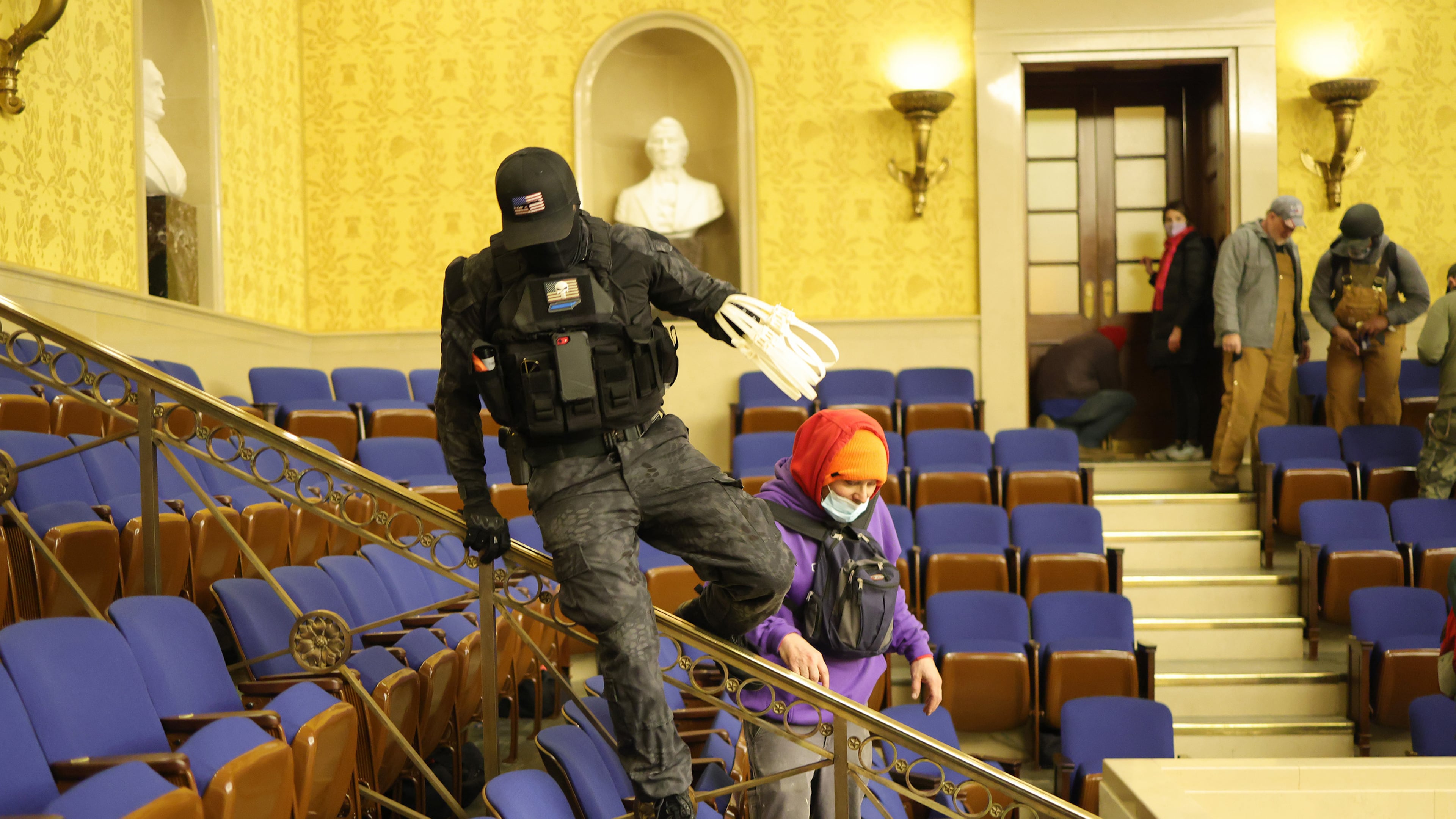‘Zip-tie guy,’ mom granted bond on Jan. 6 charges

A Nashville restaurant worker and his mother, a nurse from Woodstock, who face felony charges related to the Jan. 6 riot at the United States Capitol were granted bond Monday and will be allowed to return home after being held for more than two months.
Eric Gavelek Munchel and Lisa Marie Eisenhart were among the hundreds who flooded into the Capitol and boasted about it to the press when they emerged. Both were arrested in the days after the attack and had been held in jail without bond despite a Nashville magistrate judge’s order to release them. That decision was appealed and a district court judge in Washington, D.C., sided with federal prosecutors’ claims that the pair were too dangerous be released before trial.
The mother and son appealed that decision and last week the U.S. Court of Appeals for the D.C. Circuit ordered District Court Judge Royce Lamberth to rehear the bond request immediately. Rather than argue they be kept in jail, prosecutors relented and asked Lamberth to place them under house arrest.
The judge’s order requires Munchel and Eisenhart to stay in their homes, except for a lengthy list of errands including work, school, religious services, medical appointments, attorney and court visits, and other pre-approved activities. They cannot possess firearms and must wear a GPS monitor and submit to drug tests.
Munchel is prohibited from traveling outside the Middle District of Tennessee; Eisenhart is restricted to the Northern District of Georgia.
The duo were among the first wave of accused insurrectionists to be arrested after Munchel was identified by online sleuths who compared photos of a masked man in black tactical gear with photos of the unmasked Munchel taken in their D.C. hotel after the riot. Photos showing Munchel carrying handfuls of plastic wrist restraints through the visitors gallery in the Senate chamber earned him the nickname “zip-tie guy” by Twitter users who worked in the days following the riot to identify suspects.
Prosecutors argued Munchel and Eisenhart should remain in jail because of their alleged behavior during the attack. According to court documents, Munchel carried a Taser on his hip into the Capitol and the pair urged other rioters to push farther into the building. Prosecutors based much of their evidence on a recording of the event Munchel made with his smart phone which he mounted to the front of his tactical vest, and interviews they gave to reporters in the wake of the attack.
“The point of getting inside the building [was] to show them that we can, and we will,” Munchel told a reporter for The Times of London, with Eisenhart adding she would rather “die” than “live under oppression.”
The pair join a growing number of people charged in the Jan. 6 attack who were initially held without bond only to have a judge later send them home. Milton resident Bruno Cua and Americus attorney William McCall Calhoun both successfully challenged their bond status and have returned to Georgia to await trial for their alleged roles in the unrest.
Attorneys for Munchel and Eisenhart argued there was a “gross disparity in the treatment of these defendants compared to defendants charged with more serious conduct” who had already been granted bond. The attorneys also argued the pair posed no significant danger to their communities. The appeals court agreed, pointing out that no evidence was provided showing “Munchel or Eisenhart vandalized any property or physically harmed any person,” which could suggest they posed an ongoing danger.
“In our view, those who actually assaulted police officers and broke through windows, doors, and barricades, and those who aided, conspired with, planned, or coordinated such actions, are in a different category of dangerousness than those who cheered on the violence or entered the Capitol after others cleared the way,” the three-judge panel wrote.
Even with home confinement, the prospect of release will be a significant improvement for the two. Suspects in the Jan. 6 riot in the D.C. jail are held separately from other prisoners, and Eisenhart had been held in solitary confinement as one of the relatively few women among the hundreds so far arrested.


